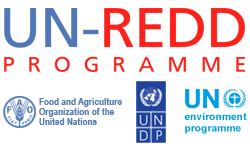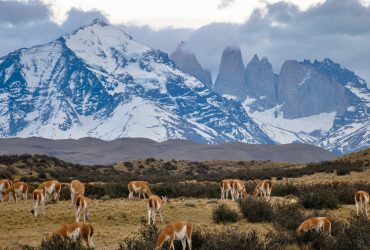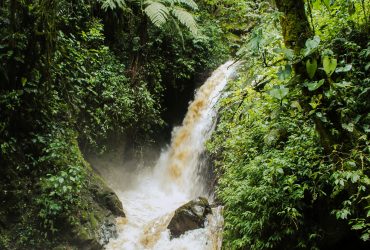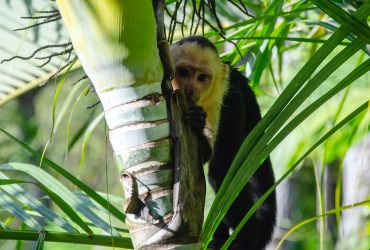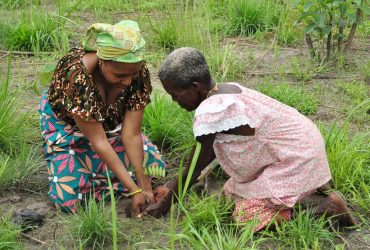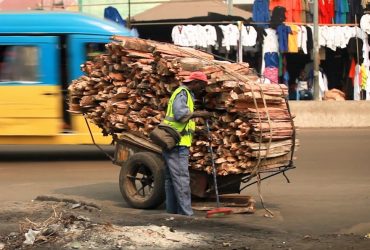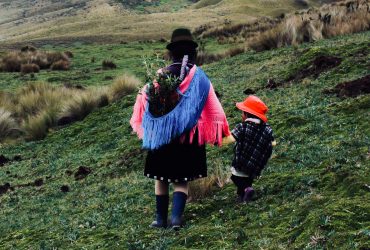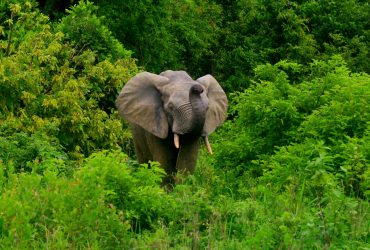PROGRESS AGAINST THE WARSAW FRAMEWORK
NS/AP: In 2021, Congo strengthened its national strategy adopted in 2017 by signing an Emission Reduction Payment Agreement (ERPA 2020-2024, 41 MUSD) for a jurisdictional program in the Likouala Sangha departments with the Carbon Fund of the World Bank, as well as by accessing REDD+ implementation focused on agroforestry and wood-energy projects (GCF, IFAD, CAFI, 37.5 MUSD)
FREL/FRL: Activity data was updated, but the submission of the FREL has been put on hold in agreement with national coordination to match carbon standards most likely to provide RBPs.
NFMS: The full GHG inventory of the Agriculture, Forestry and Other Land Use (AFOLU) sector was conducted in 2021, bringing together the NFMS technical team and the group of experts reporting for the Third National communication. Building on the existing expertise available at CNIAF, Congo has managed to secure a dedicated twoyear project with the Central African Forest Initiative (CAFI) to operationalize its NFMS, including annual updates of activity data, degradation and restoration monitoring.
SIS:Congo made progress on the Strategic Environmental and Social Assessment (SESA) and developed a quick gap analysis against the ART-TREES v2 safeguards requirements. Work towards the preparation of a summary of information has yet to begin in the country.
REDD+ IMPLEMENTATION
Forest solutions realized: In 2021, the UN-REDD Programme, in partnership with the United States Forest Service (USFS) and the Coalition for Rainforest Nations (CfRN), supported the national team in charge of the AFOLU reporting for the Third National communication. The team managed to complete a complex and extensive activity data collection exercise for the GHG inventory of the AFOLU sector. The collection was carried out over three months, with bi-weekly technical inputs from UN-REDD.
In the first quarter of the year, Congo finalized its first monitoring map of deforestation, degradation and gains for the period 2016-2018 using the BFAST algorithm available in SEPAL.
Support provided to Congo has allowed for the updating of emissions and emission reductions calculations, combining both measurement of deforestation and forest degradation. A set of preliminary calculations were carried out to estimate emission trends for different jurisdictions under the LEAF initiative.
Further updates leveraging newly available NICFI imagery will be carried out in early 2022 as an essential input for the carbon finance scoping exercise planned within the NFMS institutionalization project proposed to CAFI.
In light of the ART-TREES requirement, carbon rights have been analysed for Congo and assessment results have been used to inform a global study on carbon rights. Results were published by the UN-REDD Programme (covering at least 18 countries from Africa, Latin America and Asia). A gap analysis against the ART-TREES v2 safeguards requirements has been conducted. The document is available and can serve as a good basis for future potential concept note submissions by the country to the ART Secretariat. The results will be further used as input for the carbon finance scoping exercise planned within the NFMS institutionalization project proposed to CAFI.
CHALLENGES AND SOLUTIONS
In 2021, national REDD+ coordination was seriously understaffed, with the retirement and replacement of the coordinator. As a result, the work stream was affected by the lack of responsiveness and staffing from the national counterpart. In addition, the COVID-19 pandemic continued creating enormous challenges for delivery of technical assistance. No missions to the country could be undertaken. Remote delivery of trainings and workshops further increased difficulties concerning partner engagement. The UN-REDD team has shifted their modus operandi towards online interaction to deliver progress.
GENDER AND SOCIAL INCLUSION
Gender equality was strongly emphasised during activities carried out in 2021, and more importantly in the REDD+ preparedness and implementation project that recently started (PREFOREST GCF).
PARTNERSHIPS
In 2021, Congo made significant progress towards REDD+ implementation by accessing finance for a full GCF project (PREFOREST), co-financed by IFAD and CAFI (PROREP project) with a new partnership with Groupe de Rechercheet d’Échange Technologique (GRET). The geospatial data and maps used for the formulation of these two projects were produced by the national MRV unit of CNIAF with UN-REDD technical support.
The SYNA-MNV project, initiated with CAFI funding, was developed with direct inputs from the World Bank ER program team, ensuring strong coordination and consistency between programs dealing with REDD+ in Congo.
LINKAGES TO SDGS
The continued development of the NFMS and the progress towards the SIS all relate to SDG 15 and the sustainable management of forest resources. Through the PROREP and PREFOREST projects, Congo will specifically advance on SDG 15.3.1, amongst other SDG indicators, in the coming years.
